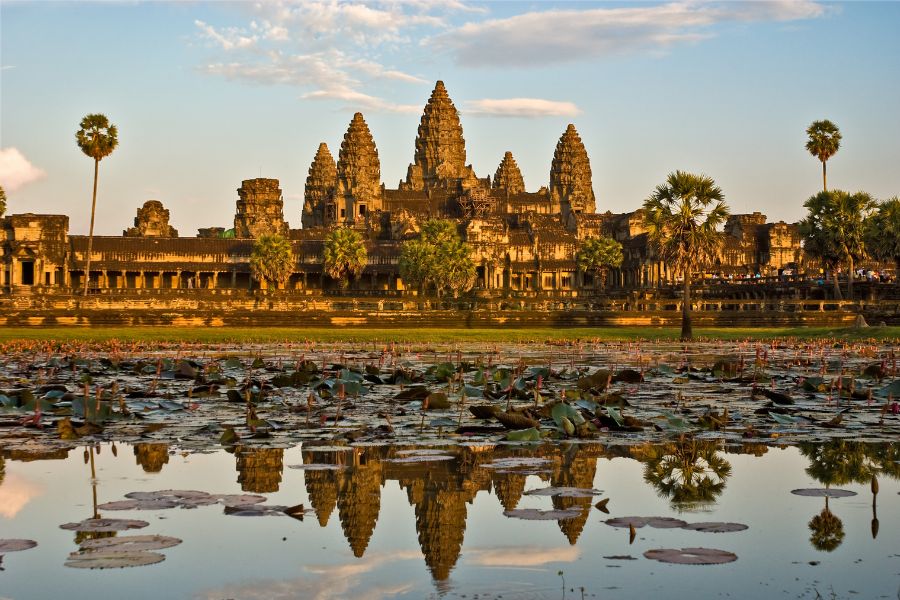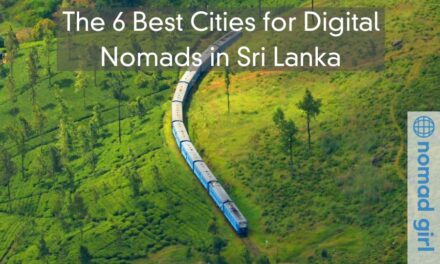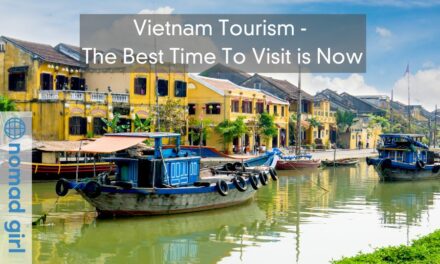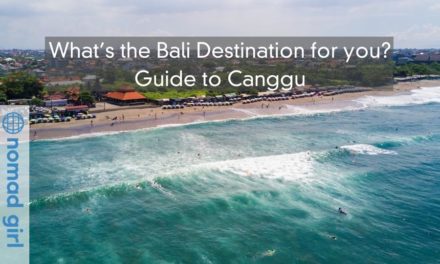Cambodia hasn’t thrown its hat in the ring regarding a formal digital nomad visa. Yet the Kingdom draws remote workers like bees to honey. With its tropical climate, generous lifestyle perks, and a laissez-faire attitude toward immigration rules, Cambodia has become the quiet alternative to Thailand’s tightening visa game.
Nomads fleeing Thailand’s new regulations find themselves drawn across the border. Cambodia still greets them with a smile and a stamp. The capital, Phnom Penh, spins with scooters, co-working cafes, and rooftop views. Siem Reap boasts ancient temple charm. Kampot offers riverside peace with a touch of French flair. Here, digital nomads can set up shop without raising eyebrows or hitting bureaucratic brick walls.
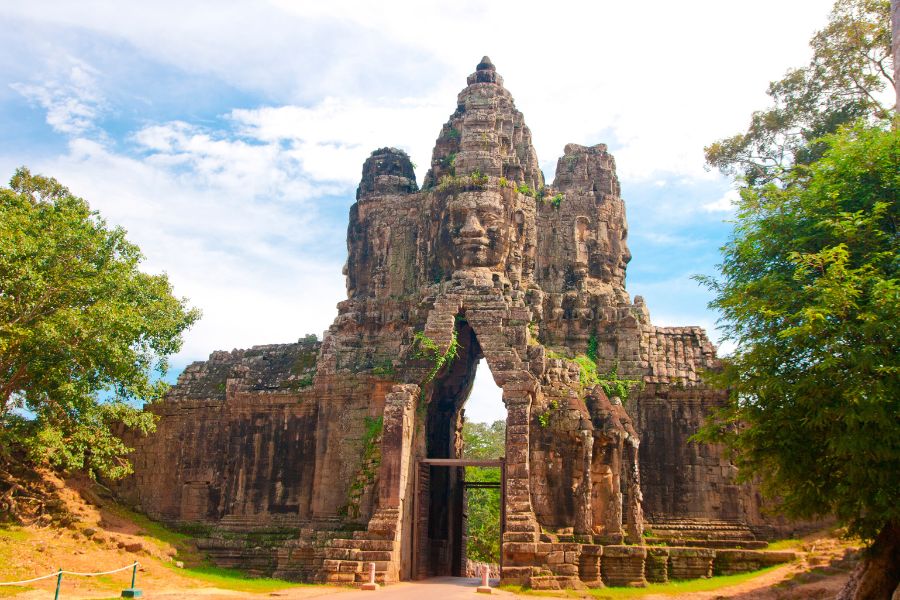
No Digital Nomad Visa? No Problem
Cambodia doesn’t offer a dedicated digital nomad visa. But resourceful remote workers find comfort in the country’s visa system, which includes:
Visa T (Tourist Visa):
- For short-term tourism
- Valid for 3 months from issue date
- 30-day stay, single entry
- Extension: one-time 30-day renewal
- Cost: USD 30
Visa E (Ordinary Visa):
- Ideal for business, employment, or long-term stays
- Valid for 3 months from issue date
- 30-day stay, extendable
- Cost: USD 35
- Extensions available: 1, 3, 6, or 12 months
Visa E Extension Costs:
- 1-month: USD 45–55
- 3-month: USD 70–90
- 6-month: USD 150–170
- 12-month: USD 270–300
Both Visa T and Visa E are available online via the official e-Visa portal or upon arrival.
The E-class visa can stretch into 6- or 12-month extensions, depending on your story. Most digital nomads opt for the EB extension. This version, often labelled the “business” extension, caters to freelancers and remote employees working for foreign companies. Officially, it targets businesspeople. In practice, it plays host to the world’s wandering workers.
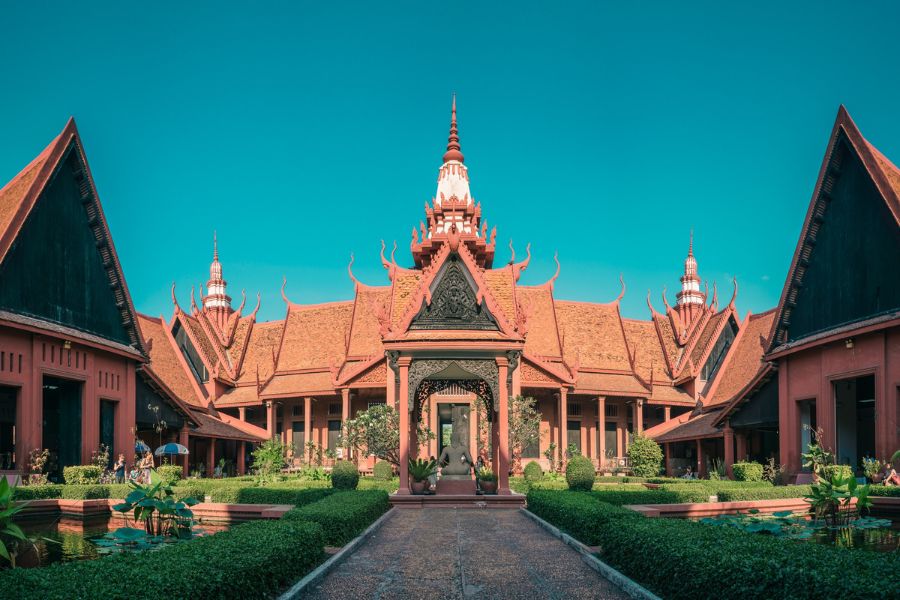
The EB Extension – The Unofficial Nomad Visa
The EB visa doesn’t demand proof of local employment or a work permit in many cases. A few well-placed documents—sometimes arranged by visa agents—help smooth the process. A rental contract, passport photos, and a letter from a “employer” may do the trick. It’s a paper game many nomads play. Six months here, a border hop there, and the cycle repeats.
Required Documents for EB Visa Extension
- Valid passport (6+ months)
- Local address registration
- Two passport-sized photographs
- Employer letter or self-employed status (usually arranged by visa agents)
Helpful Resource: Visa Extension Agents in Cambodia – CambodiaExpatsOnline
Other extensions exist, but they cater to niche cases:
- ER Visa: For retirees aged 55+, no employment permitted
- EG Visa: For job seekers, not ideal for remote work
- ES Visa: For language students, flexible but restrictive for digital work
For most digital nomads, the EB extension remains the golden ticket.
How to Apply – A Visa Agent’s Touch
Start with an E-class visa on arrival or online. Then walk your way to a visa agent’s door in Phnom Penh or Siem Reap. Agents know the drill. For a fee, they arrange extensions, supply the paperwork, and ensure the stamp lands cleanly in your passport.
Digital nomads should gather:
- Passport with at least six months left on the clock
- A couple of passport photos
- A Cambodian address (a guesthouse often suffices)
- A story that fits the visa narrative
The process lacks uniformity. Rules change like the weather. What works one month may stumble the next. That uncertainty sits at the heart of Cambodia’s charm and challenge.
Cambodia and Taxes – Mind the Grey
Tax law in Cambodia draws a blurry line in the sand. The government taxes residents on global income. A resident, in this case, means someone who clocks more than 182 days on Cambodian soil each year. But for digital nomads dancing on the edge of that definition, enforcement remains weak.
Most nomads pay tax elsewhere or not at all. Cambodia doesn’t knock on their door. The tax department seems more interested in larger fish. That said, long-term residents or those who set up shop under a local company may find themselves in murky waters.
Key Tax Considerations:
- Cambodia taxes residents on worldwide income
- Residency status: 183+ days in-country
- No tax treaties with major Western nations
- Freelancers on EB extensions rarely face audits
Useful breakdown from KPMG Cambodia Tax Guide
The Nomadic Life in Cambodia
Cambodia offers more than paperwork. Phnom Penh thrives with co-working spaces and espresso machines that hum all day. Siem Reap still lures with its old-world charm, temples whispering stories to laptop-wielding tourists. Kampot seduces with riverside bungalows and quietude. Koh Rong tempts those craving tropical stillness.
Phnom Penh – The Urban Pulse
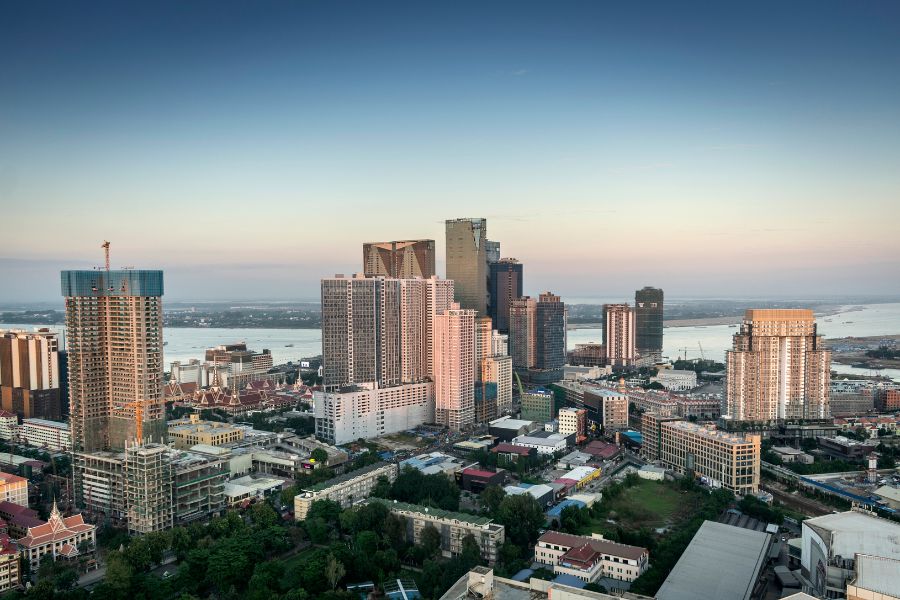
- Accommodation: $200–$300/month for a one-bedroom apartment
- Coworking Spaces:
- Estimated Monthly Budget: ~$1,180
Siem Reap – Culture Meets Connectivity
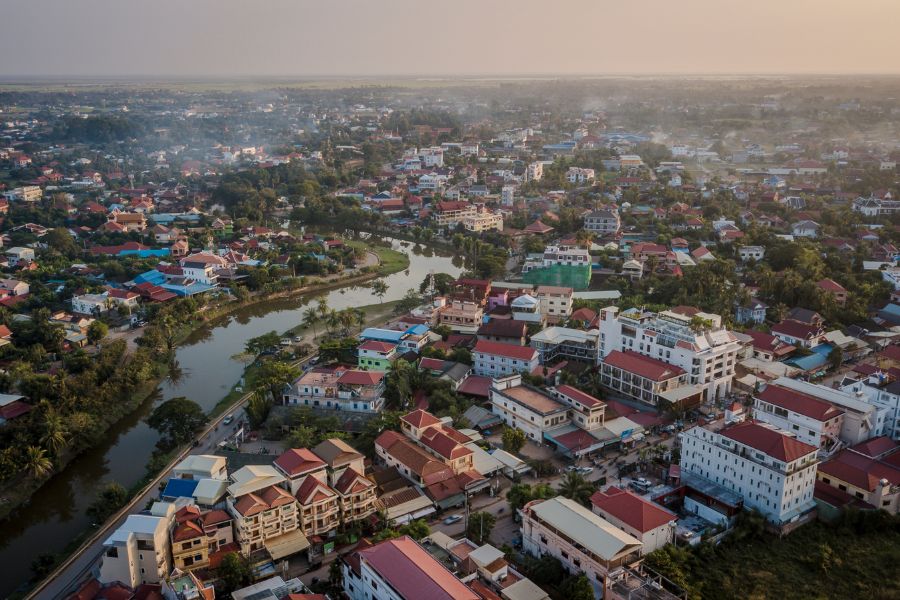
- Accommodation: $200–$250/month
- Coworking Spaces:
- Estimated Monthly Budget: ~$1,220
Kampot – Riverside Rhythms
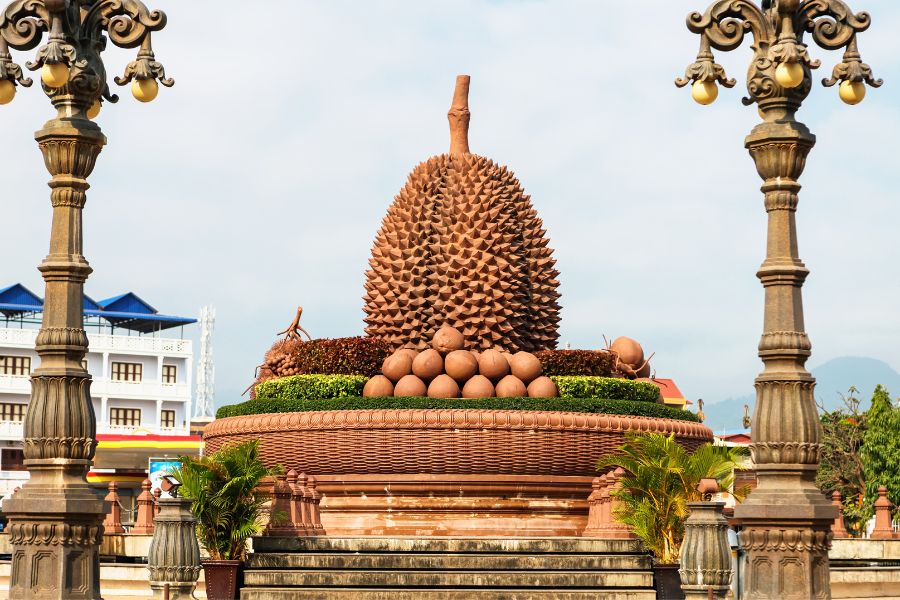
- Accommodation: $150–$400/month depending on river proximity
- Coworking Spaces:
- Estimated Monthly Budget: ~$1,250
Koh Rong – Island Interlude
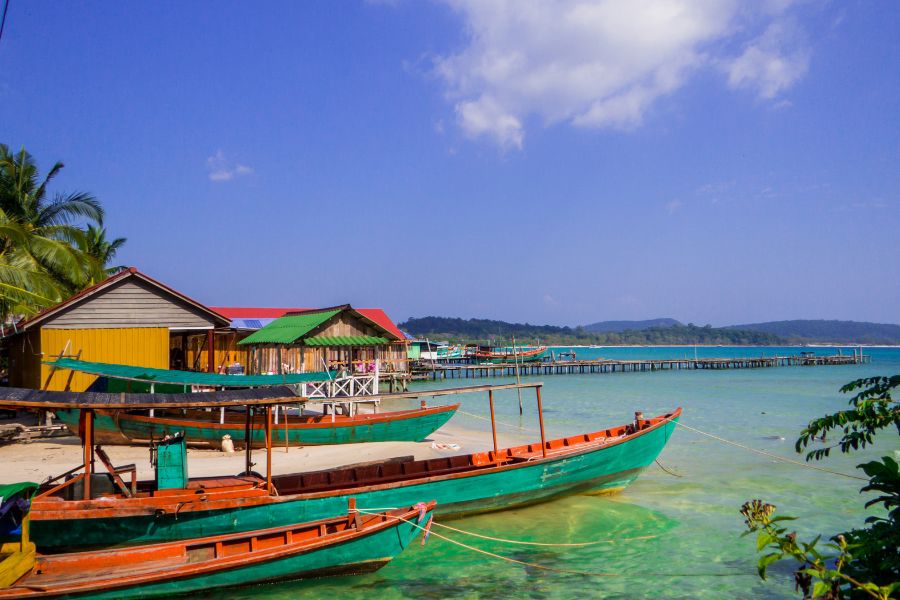
- Accommodation: $200–$500/month for long-term rentals
- Coworking/Remote-Friendly Spots:
- Estimated Monthly Budget: ~$1,450
Why Nomads Choose Cambodia
- Affordable rentals and daily expenses
- Ubiquitous Wi-Fi and mobile data
- Community-rich co-working environments
- Rich culture, fresh food, and tropical leisure
Internet speed has caught up to global standards in the cities. Mobile data flows freely, SIM cards sell for coins, and fibre optics now reach many apartments. Co-working spaces with air-con and ergonomic chairs bloom like lotus flowers in the heat.
Still, not all is rosy:
- Power outages occur during the monsoon season
- Urban pollution and dust
- Healthcare is basic – expats should carry insurance
- Infrastructure lags behind its ASEAN neighbours
Thailand’s Visa Squeeze – Cambodia’s Golden Hour?
As Thailand tightens its grip with shorter visa exemptions (there is talk of reversing the 60-day extensions to 30 days), and scrutiny over digital work, Cambodia’s relaxed stance draws attention. Thailand’s love affair with luxury tourists has cooled the welcome for budget nomads and freelancers.
Cambodia hasn’t yet rushed to mimic its neighbour. That may change. But for now, the Kingdom of Wonder lives up to its name—a place where remote workers still find freedom with fewer strings attached.
Recent developments like Thailand’s new 30-day visa limit are nudging many nomads to consider crossing the border. Cambodia, with its quieter visa scene, might enjoy a brief golden age.
News on Thailand: Bangkok Post Visa Changes
Final Thoughts – Stay Nimble
Cambodia wears its imperfections proudly. The visa process isn’t polished. The roads aren’t always smooth. But for nomads who thrive on spontaneity, it delivers the goods.
In a region where visa rules shift like dunes in a desert storm, Cambodia’s unofficial nomad welcome stands out. It might not last forever, but for now, it offers a loophole-laced lifeline to those seeking sunshine, sambal, and a spot by the river to work in peace.


